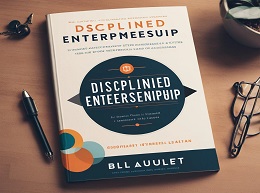Startup Nation

Startup Nation: The Story of Israel’s Economic Miracle - A Comprehensive Review
"Startup Nation: The Story of Israel’s Economic Miracle" by Dan Senor and Saul Singer offers an in-depth look into how Israel, a small country with limited natural resources, transformed itself into one of the world’s leading hubs for technology and innovation. This review will explore the key themes of the book, highlight compelling examples, and discuss the broader implications for other nations and aspiring entrepreneurs.
The Miracle of Israeli Innovation
Israel, often referred to as the "Startup Nation," boasts the highest number of startups per capita in the world. Despite its geopolitical challenges and relatively small population, Israel has managed to create a thriving ecosystem for innovation and entrepreneurship. Senor and Singer delve into the factors that have contributed to this remarkable achievement, offering valuable lessons for countries and entrepreneurs aiming to foster similar environments.
The Cultural Foundations of Innovation
One of the central themes of "Startup Nation" is the unique cultural attributes that contribute to Israel’s innovative spirit. These cultural foundations play a crucial role in fostering creativity, risk-taking, and resilience.
Chutzpah: The Audacity to Challenge
In Israel, "chutzpah" is more than just a word; it’s a way of life. This term, often translated as audacity or boldness, reflects a cultural tendency to challenge authority and conventional wisdom.
Example: Waze
Waze, the popular navigation app acquired by Google for over $1 billion, epitomizes chutzpah. Its founders questioned the effectiveness of existing GPS systems and sought to create a community-driven platform that provided real-time traffic updates. This audacious approach revolutionized navigation and demonstrated the power of challenging the status quo.
Military Service: A School for Leadership
Mandatory military service in Israel’s Defense Forces (IDF) is another key factor in shaping the country’s entrepreneurial landscape. The IDF instills discipline, leadership, and problem-solving skills, which are essential for startup success.
Example: Unit 8200
Unit 8200, Israel’s elite military intelligence unit, is known for its focus on cybersecurity and technology. Many alumni of Unit 8200 have gone on to found successful tech startups, leveraging the technical expertise and leadership skills acquired during their service.
The Role of Immigration in Fueling Innovation
Immigration has played a significant role in shaping Israel’s startup ecosystem. The influx of talented and diverse individuals has contributed to a rich pool of ideas and perspectives.
The Russian Wave
The mass immigration of Russian Jews in the 1990s brought a wave of highly educated professionals, particularly in science and engineering. This influx of talent provided a substantial boost to Israel’s tech sector.
Example: Check Point Software Technologies
Check Point, a leader in cybersecurity, was founded by Gil Shwed, Marius Nacht, and Shlomo Kramer. Nacht, an immigrant from Romania, brought valuable expertise that helped propel Check Point to global prominence.
Government Support and Policy Framework
The Israeli government has implemented various policies and initiatives to support innovation and entrepreneurship. These measures have created a conducive environment for startups to thrive.
Yozma Program
The Yozma program, launched in the early 1990s, is a prime example of effective government intervention. By providing matching funds to venture capital firms investing in Israeli startups, Yozma attracted significant foreign investment and helped establish a vibrant VC industry in Israel.
Example: Amdocs
Amdocs, a global leader in customer experience software, benefited from the early support of the Yozma program. Today, Amdocs serves major telecommunications companies worldwide, showcasing the long-term impact of government-backed initiatives.
Innovation Authority
The Israel Innovation Authority (IIA) supports startups through grants, incubators, and research and development incentives. This organization plays a crucial role in nurturing early-stage companies and fostering innovation across various sectors.
Example: Mobileye
Mobileye, an Israeli company specializing in autonomous driving technology, received support from the IIA during its formative years. Acquired by Intel for $15.3 billion, Mobileye exemplifies the success of public-private collaboration in driving innovation.
Entrepreneurial Ecosystem: Collaboration and Networking
Israel’s tight-knit entrepreneurial ecosystem is characterized by extensive collaboration and networking. This environment fosters the exchange of ideas and resources, facilitating startup growth.
Tech Meetups and Conferences
Regular tech meetups and conferences, such as the DLD Tel Aviv Innovation Festival, provide platforms for entrepreneurs, investors, and industry leaders to connect and collaborate. These events are crucial for building relationships and fostering a sense of community within the startup ecosystem.
Example: WeWork Labs
WeWork Labs, the startup incubation arm of WeWork, has established a strong presence in Israel. By offering coworking spaces and networking opportunities, WeWork Labs supports early-stage startups and enhances their chances of success.
Education and Research: Building a Knowledge Economy
Israel’s emphasis on education and research has been instrumental in creating a knowledge-based economy. The country’s universities and research institutions are renowned for their contributions to technology and innovation.
Technion – Israel Institute of Technology
Technion, often referred to as Israel’s MIT, is a leading center for scientific and technological research. Many of its graduates have founded successful startups, and the institution plays a key role in fostering innovation.
Example: Elbit Systems
Elbit Systems, a global defense electronics company, was founded by Technion alumni. The company’s cutting-edge technologies and solutions reflect the high level of expertise and innovation cultivated at Technion.
Lessons for Aspiring Entrepreneurs and Nations
"Startup Nation" offers valuable lessons for aspiring entrepreneurs and nations seeking to emulate Israel’s success. Key takeaways include:
Embrace Risk and Failure
A willingness to take risks and learn from failure is essential for innovation. Israel’s culture of chutzpah encourages entrepreneurs to pursue bold ideas and persevere in the face of setbacks.
Foster a Collaborative Ecosystem
Creating a supportive ecosystem that encourages collaboration and networking can significantly enhance a startup’s chances of success. Regular events and shared spaces for entrepreneurs to connect and exchange ideas are crucial.
Invest in Education and Research
A strong emphasis on education and research is fundamental to building a knowledge-based economy. Supporting institutions that drive scientific and technological advancements can yield long-term benefits.
Government Support and Incentives
Proactive government policies and incentives can create a favorable environment for startups. Programs that provide financial support, reduce bureaucratic barriers, and attract foreign investment are particularly effective.
The Future of the Startup Nation
"Startup Nation" provides a compelling account of how Israel transformed itself into a global innovation powerhouse. The combination of cultural attributes, government support, a collaborative ecosystem, and a strong focus on education and research has been instrumental in this success. As other nations and aspiring entrepreneurs look to replicate Israel’s achievements, the insights from "Startup Nation" offer a valuable roadmap for fostering innovation and economic growth.
By understanding and applying the principles outlined in this book, countries and entrepreneurs can cultivate environments that nurture creativity, resilience, and technological advancement, paving the way for future economic miracles.













